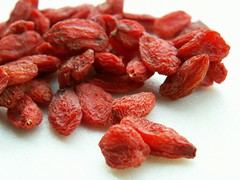Peonies by Donnali
The beautiful peony blossoms are in abundance in Portland at last. I recently learned from a peony cultivator that you can cut peony trees down to the root, and they will easily grow back to full bloom within the a year. The roots run deep into the ground, and are very strong and sustaining. It's no wonder they are often used in Chinese herbal formulas!
In Chinese herbal medicine, the root of both the red (chi shao yao) and white (bai shao yao) peony are used. Peony root is an herb that is often used in women's formulas. Bai shao yao is often used in formulas to stop pain, and it nourishes the Yin in the body. Chi shao yao is also used to stop pain and it cools the blood and clears excess heat.
The sour and bitter quality of these herbs allow practitioners to use them in formulas to help with stagnation-related syndromes, such as trauma or stress. The quality of these herbs can help relieve pain symptoms such as cramping during menstrual cycles, and swelling or inflammation of tissues.
For more detailed information on these herbs, check out Subhuti Dharmananda's website at ITM online.



